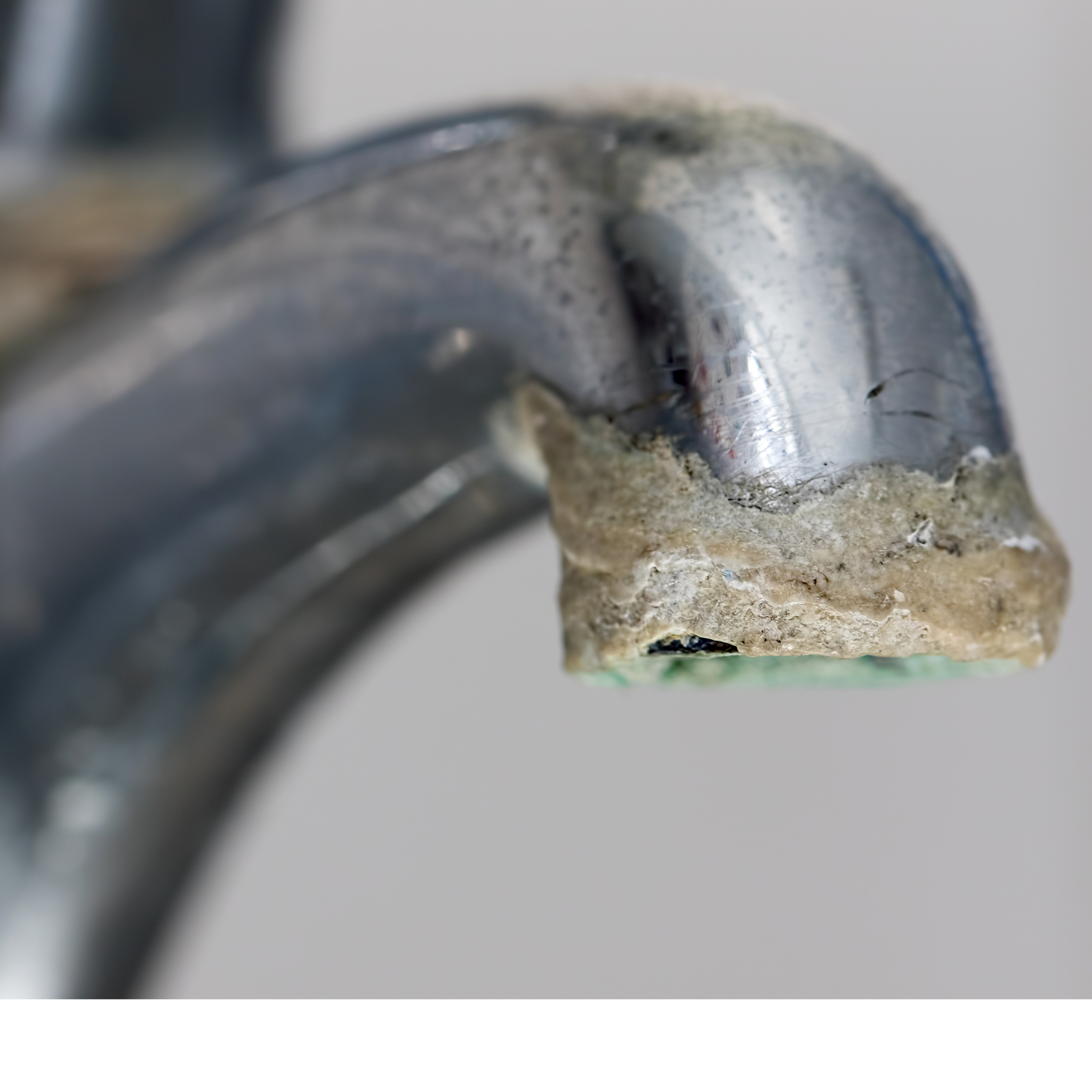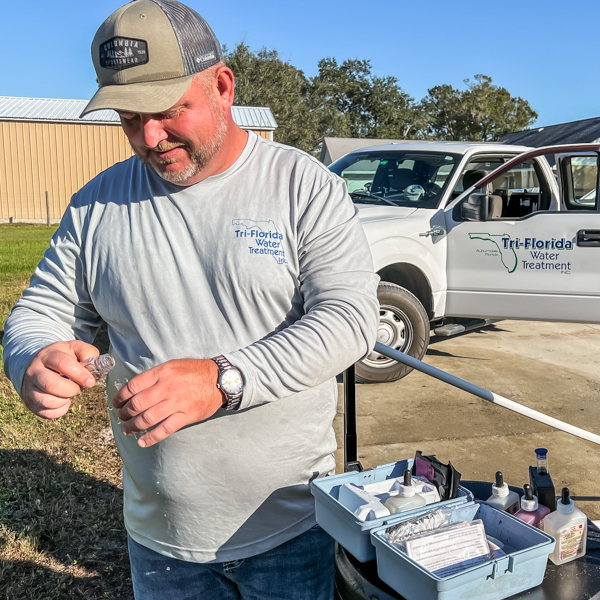What Are the Signs of Hard Water?
Data suggests that nearly 85% of American homeowners deal with hard water. Hard water can wreak havoc on appliances and plumbing systems and be a hassle when cleaning. In this post, we look at what hard water is, its effects, and how to minimize the damage it causes.
 What is Hard Water?
What is Hard Water?
According to Energy. Gov, Before reaching the municipal supply, water absorbs mineral content from rocks and soil. Some of this content, like calcium and magnesium, are hard minerals that not only make soap less effective, they also gradually lead to limescale buildup. Water hardness is measured using grains per gallon (gpg), where one grain equals 0.002 ounces of calcium carbonate dissolved in 1 gallon of water. For water to be considered hard, it must be 7.5 gpg or more.
What Are the Effects of Hard Water?
Although water with a high mineral content isn’t unsafe to drink, it is a nuisance in the home. Here are some of hard water’s effects.
Scale Buildup
Hard water’s most obvious visible effect is the scale buildup it leaves on plumbing fixtures. If you notice a white, chalky substance caked around the faucet or stains in the tub or toilet, that’s from the minerals in the hard water.
You can purchase cleaning products to remove the buildup, but it’s difficult to do when it’s in your plumbing.
Clogged Pipes
Unfortunately, stains and unsightly scale deposits are the least of your concerns if you have hard water. The minerals in the water are too small to clog your drains themselves, but the scale builds up in your pipes, causing them to narrow over time and eventually clog.
Damaged Appliances
Hard water can cause various damage to appliances, particularly those that use water. As mentioned, it builds up in pipes over time, leading to clogs and restricting water flow. Additionally, if left unchecked, hard water will reduce the lifespan of water-based appliances like dishwashers, water heaters, washing machines, and refrigerators with ice makers. If you’ve heard your water heater making cracking or popping sounds, it’s typically the result of mineral buildup from hard water that’s to blame.
Skin & Hair Problems
Soap doesn’t dissolve fully in hard water, so it’s common for soap residue to be left behind after bathing. This results in lifeless hair with no body and sticky and dry skin.
Dirty Dishes & Cookware
Do you notice spots on your silverware or glasses after washing them? You can blame hard water for that too. Because the dishwashing detergent doesn’t fully dissolve during the wash cycle, it leaves residue behind, resulting in spotty dishes.
Dingy Clothes
Have you noticed how quickly your bright colored clothes fade after only a few washings? That’s hard water. The minerals in the water don’t play nice with detergents; they bond with the soap and stick to the fabric, attracting the dirt you’re trying to remove. The result is clothes that look faded, feel stiff, and wear out more quickly.
How to Eliminate Hard Water
Many homeowners live with hard water and think there’s nothing they can do about it, but that’s not true. Installing a water softener reduces the water’s mineral content to an acceptable level and eliminates most of the problems listed above.
How Do Water Softeners Work?
Water softeners use an ion exchange process to remove the minerals that make water hard. Water enters the system at the home’s water supply line, then flows through a tank containing a special resin that attracts the minerals and replaces them with sodium ions. The minerals have a positive charge, while the resin has a negative charge; this process is called ion exchange. After the exchange, the soft water exits the system and enters the house. Eventually, the resin beads reach their capacity, and you must regenerate the tank by flushing it. The average water softener must be regenerated after about every 12,000 gallons.

Testing for Hard Water
If you get your water from a municipal supplier, they should provide you with a consumer confidence report via mail or online. This report will tell you where your water comes from and what’s in it and may include the hardness. If you don’t have this information available, you can purchase a home test kit or contact a water treatment company for in home testing.
Call Tri-Florida Water Treatment
Tri-Florida Water Treatment is a trusted local water treatment company serving Lakeland, FL, Winter Haven, FL, and the surrounding areas. We offer in home testing of city and well water and have a variety of systems to soften and purify your home’s water for better health and convenience.
If you’re sick of dealing with hard water or are unsure of its safety, call us today at 863-965-1439 to schedule a free in-home water analysis.
